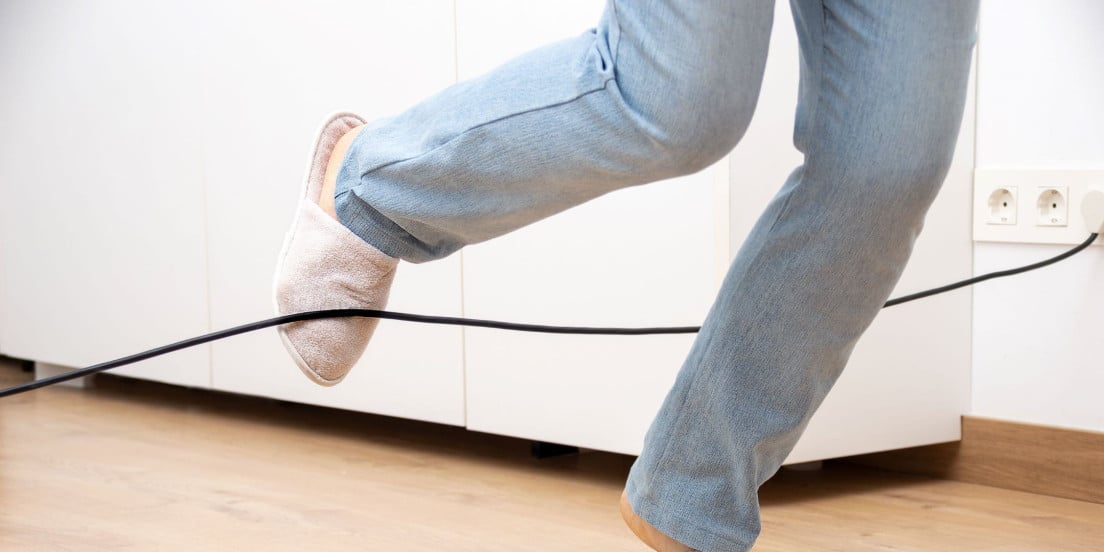Home Safety Tips For Retirees
06 February 2025
Posted under: Hobbies & interests, News articles

Retirement is an opportunity to relax and enjoy life, but as we age, things that we may not have previously considered a safety risk in the home can cause accidents. By planning and taking the right precautions, you can maintain your independence and reduce the risks of accidents or emergencies. Here are some essential tips for maintaining a safe and comfortable home.
Preventing Falls
Falls are one of the most common causes of injury among older adults, but they can be prevented with some thoughtful modifications to your home. You should ensure your homes are free from tripping hazards by removing loose rugs, securing any cords and keeping pathways clear of clutter.
Bathrooms and kitchens can benefit from non-slip mats and installing grab bars in key locations such as near the toilet or inside the shower can provide additional stability. Adequate lighting is essential to preventing accidents, especially in hallways and staircases. Motion-sensor lights or nightlights are excellent solutions for navigating safely in the dark.
Enhancing Home Security
Home security is equally as important for retirees as the rest of the population, as feeling safe from external threats can bring significant peace of mind. Consider installing a modern security system that includes cameras and motion detectors to deter intruders and provide instant alerts in case of a breach.
Video doorbells are beneficial, allowing you to see who is at the door without opening it. Securing all windows and doors with sturdy locks and considering options like deadbolts or smart locks can further enhance safety and potentially reduce home insurance premiums as insurance companies recognise the additional security they bring. Simple measures, such as keeping a phone nearby at all times, add a layer of preparedness.
Fire Safety
Fire safety is another critical aspect of home safety. Smoke detectors as well as carbon monoxide detectors should be installed in every room and tested monthly to ensure they are functioning properly. It is vital to have a clear fire escape plan and practice it regularly to ensure a quick response in an emergency. You should also avoid overloading electrical sockets and make sure that all appliances that are not in use are unplugged to minimise fire risks.
Kitchen Safety
Maintaining a safe kitchen environment is essential and a few proactive measures can make a big difference. For example, if your kitchen has a gas hob, you should schedule regular inspections to ensure everything is in proper working order. Replacing heavier kitchen items like kettles with lighter, ergonomically designed models can also make daily tasks easier and safer, particularly if you have trouble with joints or arthritis.
To avoid electrical appliance issues, ensure the cords are in good condition and away from water sources. Keep frequently used items within easy reach to avoid unnecessary stretching or strain and store sharp objects securely. A well-organised and maintained kitchen can help you focus on the joy of cooking while minimising risks.
Emergency Preparedness
Being prepared for emergencies is another essential step in home safety. Having a communication plan in place is crucial. Emergency phone numbers, including contacts for family members, carers or doctors should be displayed prominently. Keeping a mobile phone charged and accessible ensures help can be reached quickly..
Staying connected with others is vital for safety and well-being. You can establish a check-in system with family, friends, or neighbours to ensure someone knows if something goes wrong. Having an emergency alert device with fall detection or a panic button can provide peace of mind. Remaining active in local community groups or clubs also helps build a supportive network of people who can offer assistance if required.
Regular Home Maintenance
Regular home maintenance plays an important role in keeping your home safe. Inspect your homes periodically for potential hazards like loose floorboards or exposed wires. Heating, ventilation and air conditioning systems should be serviced regularly to avoid breakdowns or accidents. For major repairs or tasks like roof work, hiring a professional is always a safer option than attempting to fix an issue yourself.
By addressing these key areas and keeping connected, prepared and secure, you can create a home environment that is both safe and comfortable. With these proactive measures, you can enjoy your golden years relaxing with a strong peace of mind.